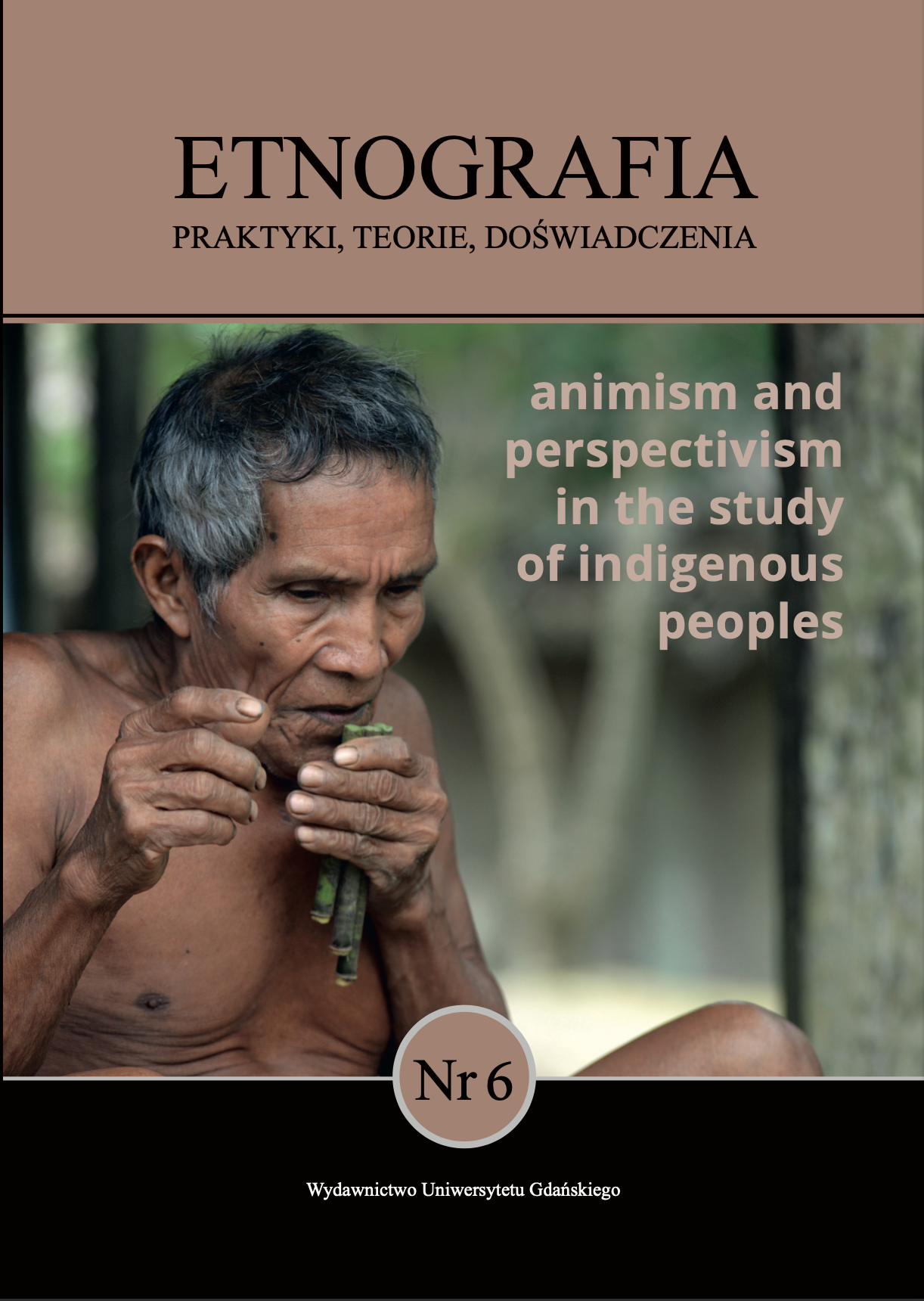Stereotypizując fryzurę . Wyobrażenia na temat włosów w doświadczeniach osób noszących dredy w Polsce
DOI:
https://doi.org/10.26881/etno.2020.6.12Słowa kluczowe:
hair, dreadlocks, stereotype, field research, genderAbstrakt
The article is an anthropological analysis of the symbolism of hair and the socio-cultural meaning associated with hairstyles based on the example of dreadlocks in Poland, explored during field research conducted by the author in 2016–2017. The text presents the symbolism of dreadlocks in various cultural contexts and an analysis of hair stereotypes in the experiences of people wearing dreadlocks in Poland. This hairstyle is part of many cultures, in which it has different names and performs different functions. Depending on the place, it may symbolize the religiosity of an individual, a political manifesto, mourning or fashion. The individual motives to wear such a hairstyle are not always associated with a particular ideology or policy, but the decision to do so is not completely free from significance. The main part of the article, discussing the Polish context, has been based on interviews conducted as part of the author’s M.A. thesis.
Downloads
Bibliografia
Agwuele, A. (2016). The Symbolism of dreadlocks and communicative Contents of Dreadlocks in Yorubaland. London: Palgrave Macmillan.
Ashe, B. (2015). Twisted: My Dreadlock Chronicles. Chicago: Agate.
Banek, K. (2010). Opowieść o włosach. Zwyczaje – rytuały – symbolika. Warszawa: Wydawnictwo TRIO.
Banks, I. (2000). Hair Matters: Beauty, Power, and Black Women’s Consciousness. New York, London: New York University Press.
Berg, C. (1951). The Unconscious Significance of Hair. London: Allen & Unwin.
Bogin, B. (2008). On Tantric Hairstyles in Tibetan Buddhism. History of Religions, 48(3),85‒109.
Brückner, A. (1927). Słownik etymologiczny języka polskiego. Kraków: Krakowska Spółka Wydawnicza.
Burszta, J. (1969). Kultura ludowa – folkloryzm – kultura narodowa. Kultura i Społeczeństwo, 13(4), 69‒90.
Cukierska, A. (2014). Plica Polonica. Bytom: Kronika.
Douglas, M. (2004). Symbole naturalne: rozważania o kosmologii, przeł. E. Dżurak. Kraków: Wydawnictwo Uniwersytetu Jagiellońskiego.
Forte, M.C. (2017). Cultural Appropriation, Cultural Exploitation, Cultural Genocide: Problems of Neoliberal Diversity Management. Źródło: https://zeroanthropology.net/2017/12/19/cultural-appropriation-cultural-exploitation-cultural-genocide-problems-of-neoliberal-diversity-management/ [dostęp: 25.06.2020].
Gąsiorowski, S. (2013). Plica Polonica, czyli kołtun polski w XVI–XVII w. Rocznik Przemyski, XIL, 3‒16.
Goffman, E. (2010). Człowiek w teatrze życia codziennego, przeł. H. Śpiewak. W: A. Cha- łupnik (red.), Antropologia widowisk – zagadnienia i wybór tekstów (s. 47‒60). Warszawa: Wydawnictwo Uniwersytetu Warszawskiego.
Hallpike, C. (1969). Social Hair. Man, 4, 256‒264.
Hiltebeitel, A., Miller, B. (1998), Hair: its power and meaning in Asian Cultures. Albany: State University New York Press.
hooks, b. (1989). From Black Is a Woman’s Color. Callaloo, 39, 382‒388.
Leach, E. (1958). Magical Hair. Journal of the Royal Anthropological Institute of Great Britain and Ireland, 88(2), 147‒164.
Linton, R. (1937). One hundred percent American. The American Mercury, 40, 405‒406. Malinowski, B. (1957). Życie seksualne dzikich w północno-zachodniej Melanezji: miłość, małżeństwo i życie rodzinne u krajowców z Wysp Trobrianda Brytyjskiej Nowej Gwinei, przeł. J. Chałasiński. Warszawa: Wydawnictwo Książka i Wiedza.
Obeyesekere, G. (1981). Medusa’s hair: An Essay on Personal Symbols and Religious Experience. Chicago, London: University of Chicago Press.
Olivelle, P. (1998). Hair and Society: Social Significance of Hair in South Asian Traditions. In: A. Hiltebeitel, B. Miller (eds.), Hair: its power and meaning in Asian Cultures (pp. 11‒49). Albany: State University New York Press.
Pruszyński, J.J., Putz, J., Cianciara, D. (2013). Plica neuropathica – historia problemu i opis przypadku. Hygeia Public Health, 48, 481‒485.
Rooks, N. (1996). Hair Raising: Beauty, Culture and African American Women. New Brunswick: Rutgers University Press.
Saitoi, T.O., Beckwith, C. (1980). Maasai. New York: Harry N. Abrams.
Synnott, A. (1987). Shame and Glory: A Sociology of Hair. The British Journal of Sociology, 38(3), 381‒413.
Targońska, A. (1998). Symbolika włosów i manipulowanie włosami w kulturze ludowej. Lud, 82, 157‒176.
Tarlo, E. (2016). Entanglement. The Secret Life of Hair. London: Oneworld.
Tomicki, R. (1987) Poza społeczeństwem – w pobliżu boskości. Przyczynek do rozważań nad symboliką włosów. Polska Sztuka Ludowa, 41, 169–176.
Tylor, E.B. (1898) Cywilizacja pierwotna. Badania rozwoju mitologji, filozofji, wiary, mowy, sztuki i zwyczajów, t. 2, przeł. A. Kowerska. Warszawa: Wydawnictwo „Głosu” w drukarni
F. Csernaka. Udziela, M. (1891). Medycyna i przesądy lecznicze ludu polskiego. Przyczynek do etnografii pol-skiej. Warszawa: Skład Główny w Księgarni M. Arcta.
Watson, J.L. (1998) Living ghosts: Long-haired destitutes in Colonial Hong Kong. In: A. Hiltebeitel, B. Miller (eds.), Hair: its power and meaning in Asian Cultures (pp. 177–194). Albany: State University New York Press.
Young, J.O, Brunk, C.G. (2009). The Ethics of Cultural Appropriation. Oxford: Wiley-Blackwell.
Opublikowane
Jak cytować
Numer
Dział
Licencja
Czasopismo wydawane jest na licencji Creative Commons Uznanie autorstwa-Na tych samych warunkach 4.0 Międzynarodowe.

 Uniwersyteckie Czasopisma Naukowe
Uniwersyteckie Czasopisma Naukowe








